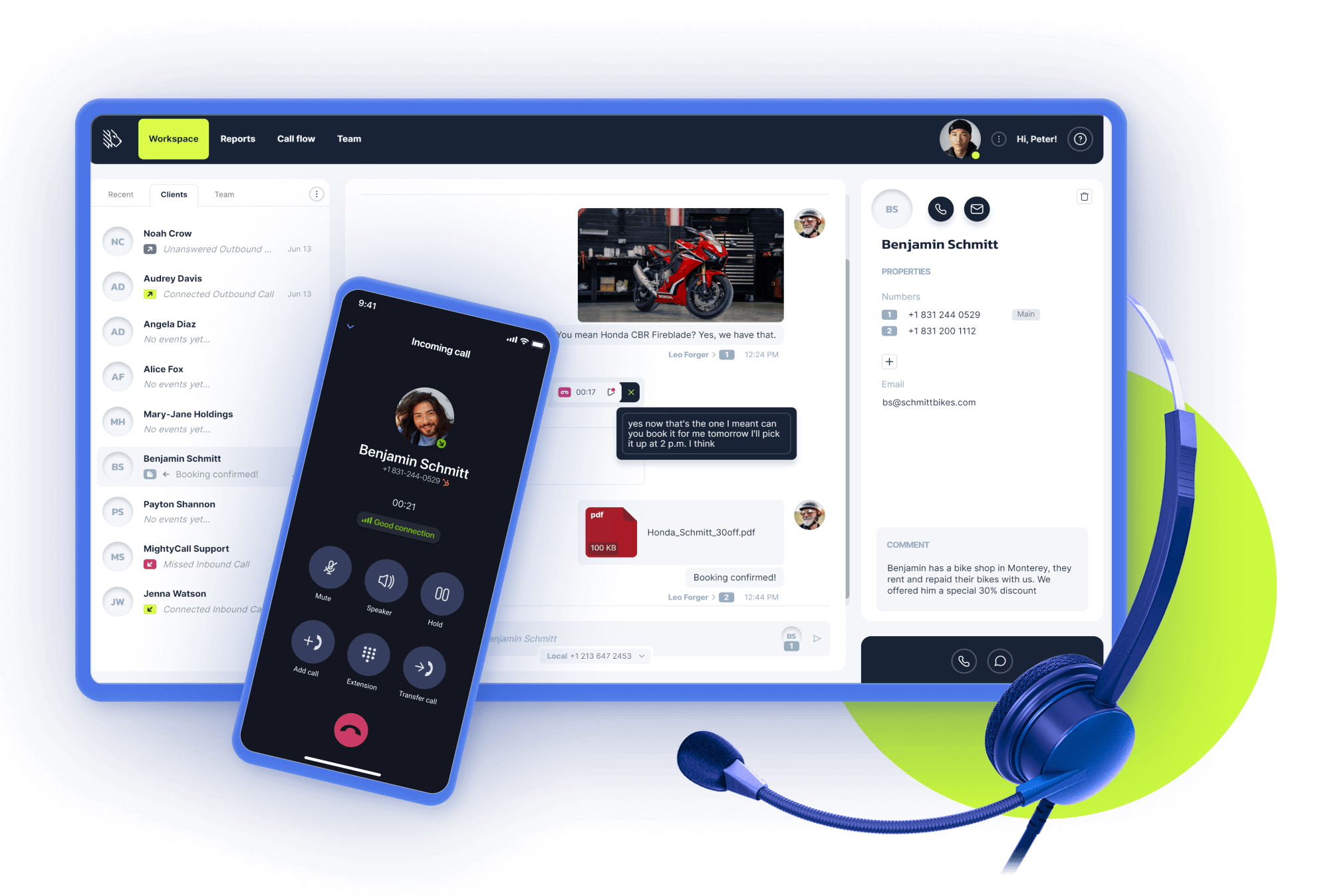What is VoIP?
Modern problems require modern solutions. The old way of relying on a traditional landline, single cell phone, or even a litany of connected desk phones just won’t cut it anymore in this fast-paced world. That’s where a VoIP – standing for “Voice over Internet Protocol” – telephone service comes in. These VoIP telephone services allow you to make calls over the internet instead of over a landline. This has the effect of dramatically broadening your reach and capabilities, as you can make calls over any internet connected, sound capable device.
But these services do not just allow you to call. Taking advantage of the capabilities brought by the internet, with VoIP you can access dozens of advanced calling features that a traditional phone service can’t provide.
What is VoIP Used for?
VoIP services are used by businesses big and small and across a variety of different work sectors. Large companies like call centers can take great advantage of the features present in VoIP calling services, like auto attendants and call queuing. But so can small and midsize businesses (SMBs), as the many features and flexibility that the service allows for makes it very easy for even single person businesses to thrive.
What is a VoIP Phone Service?
This is a system that works with the help of VoIP technology (which means, again, voice over internet protocol) that allows you to make and receive calls using an Internet connection. The VoIP phone service converts voice signals into digital data in packets and sends them over the Internet through a router, reaching the destination in less than a second (otherwise phone calls would be laggy).
You can see why a cloud business VoIP service is so advantageous. With the internet, you can dramatically change how you do business. All you need is Wi-Fi: you do not need a bunch of wires and cables. Likewise, being online means being flexible – and that means integration with your favorite CRM (Customer Relationship Management) tools, along with dozens of other features that facilitate business communications.
















